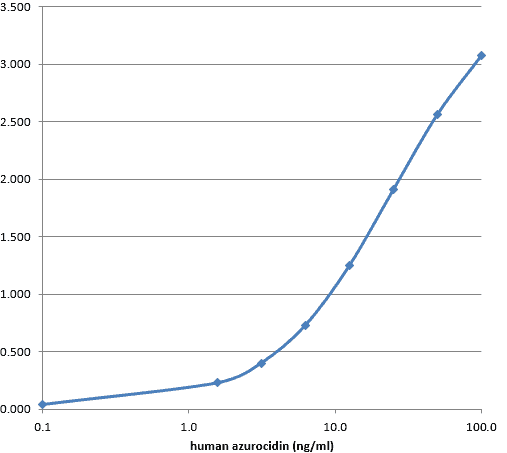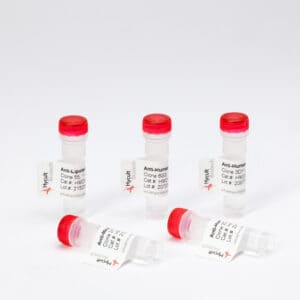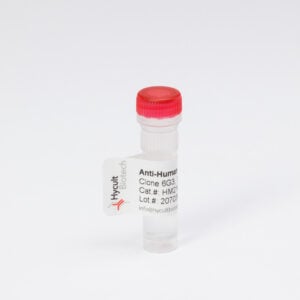Azurocidin, Human, mAb z6733
The monoclonal antibody z6733 recognizes azurocidin (also called heparin-binding protein (HBP) or cationic antimicrobial protein of 37 Kda (CAP37). Azurocidin is an inactive homolog of serine proteinases residing in granulocytes. Initially it was thought to have only activity against gram-negative bacteria. Later it was also found to act against gram-positive bacteria and C.albicans. Azurocidin is considered a family member of polymorphonuclear leukocytes- derived antimicrobial proteins like defensins, LL-37 and lysozyme. Azurocidin has been recognized as a player in the activation and modulation of the immune response and may act to alarm the immune system. The cationic domain at one side of the protein is essential for its antimicrobial activity. It is stored in azurophil granules as well as secretory granules and as a result partly released at early stage of extravasation. Azurocidin is involved in chemotaxis and activation of monocytes, cytokine release and phagocytosis leading to more efficient bacterial clearance. The primary targeted environment of azurocidin are cells in the bloodstream, that is the endothelial lining, and the extravascular surroundings. The interaction of azurocidin with leucocytes is mediated via β2-intergrins. High plasma levels of azurocidin might help with the identification of patients which are at risk in developing sepsis.




